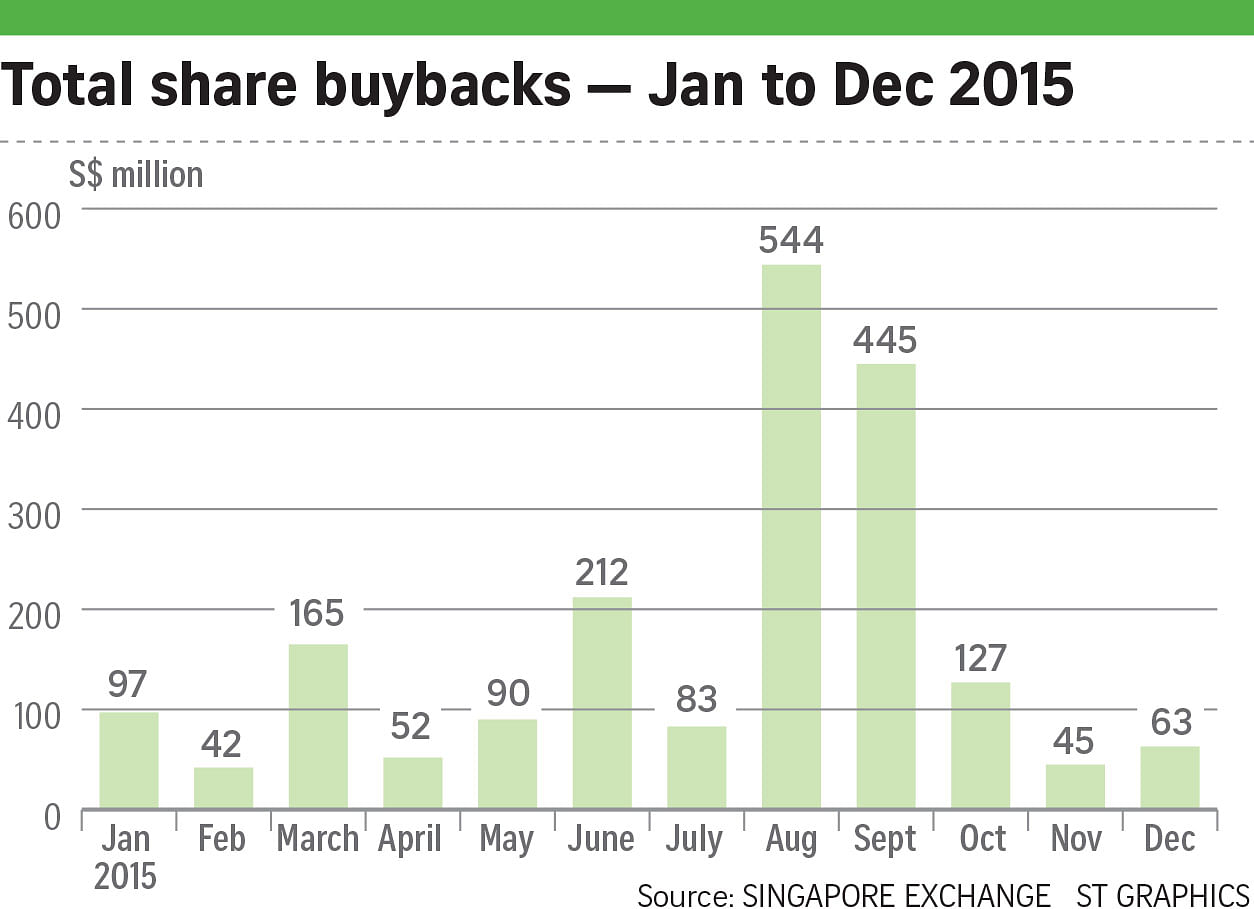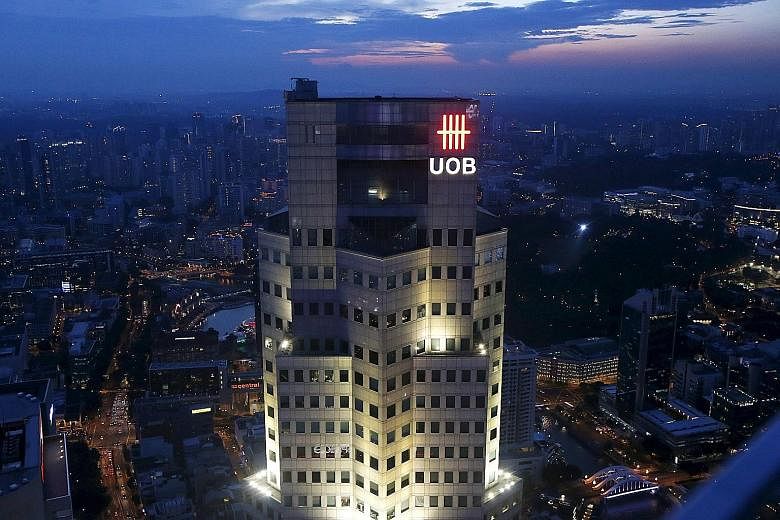Companies spent around $2 billion buying back their own shares last year - a record level since the Singapore Exchange (SGX) introduced the buyback scheme in 1999.
The outlay easily surpassed the previous high of $1.071 billion during the global financial crisis in 2008, according to research firm Asia Insider Limited yesterday.
The third quarter was the most active period for buybacks, accounting for more than half of the year's total spend.
Companies repurchased 713.8 million shares worth $1.07 billion in the three months to Sept 30, with $544 million spent in August alone, or 28 per cent of the total turnover in 2015, said Asia Insider Limited.
"We have seen numerous buybacks throughout the year and this spike in the transaction value of buybacks in August and September 2015 can be attributed to sizeable buybacks from big corporates such as Singapore Airlines," said Dr Ernest Kan, Deloitte Singapore's chief of operations for clients and market.
The year ended on a more modest note after the buying boom in the middle of the year.
Buybacks totalled only $63.1 million in December, according to SGX My Gateway yesterday, with 38 companies purchasing 67.7 million shares.

United Overseas Bank, DBS, OCBC and Pacific Century Regional Developments were the big buyers, said the SGX.
UOB spent $12.7 million buying nearly 660,000 shares on the open market in December, about two-thirds of the 927,830 shares it has accumulated since it started its latest share buyback mandate on April 24 last year.
Companies buy their shares back from the open market when they feel their stock price has been undervalued or if they want shares to issue to staff as part of schemes to reward good performance.
Dr Kan said some companies repurchase their own shares with excess cash in order to improve their earnings per share (EPS).
"An improved EPS will result in a better distribution among existing shareholders, and can lead to better share prices as they signal confidence to existing and new investors alike," he said.
IG market strategist Bernard Aw noted that the Singapore stock market experienced a sharp pullback in August, in line with the global stock sell-off after China devalued the yuan on Aug 11.
He said: "With falling prices, corporates may have used share buybacks for a couple of reasons. First, to defend their share prices by shrinking the supply of free-float in the market and second, to buy back their shares on the cheap."


